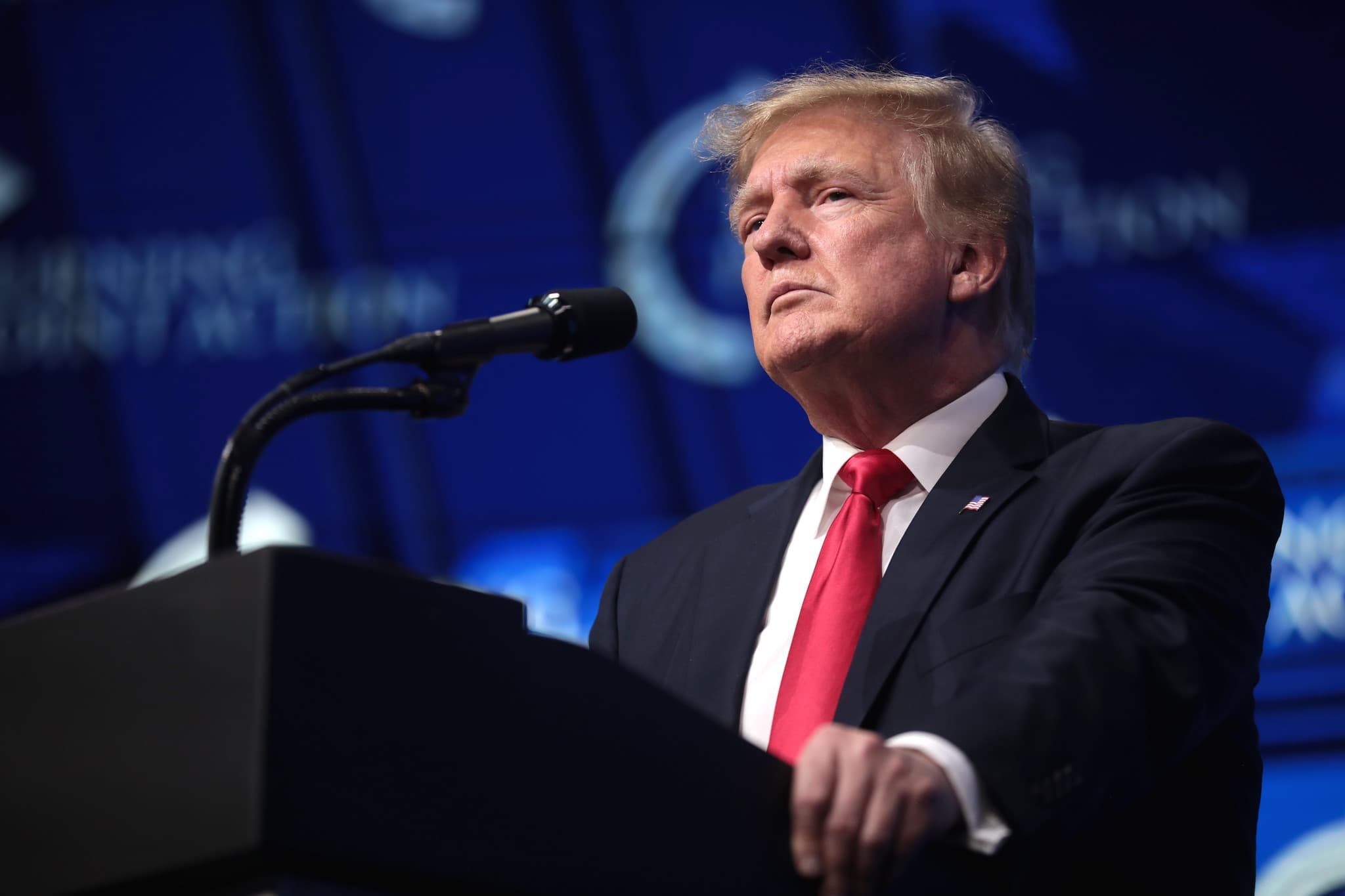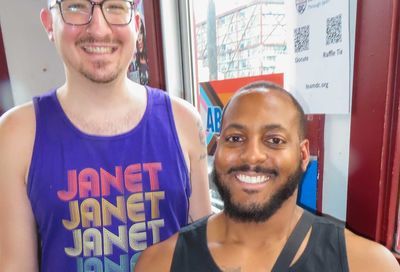Interview: Hungary’s U.S. Ambassador Blasts Anti-LGBTQ Crackdown
David Pressman says pro-LGBTQ advocacy is part of the United States commitment to advancing human rights abroad.

“The story of the LGBT movement in Hungary, and the story of the fight for human rights in Hungary, is a story that is being written by Hungarians,” says David Pressman, the U.S. ambassador to Hungary and one of six out gay men currently serving as a U.S. ambassador abroad.
Since assuming his current post last year, Pressman has been ridiculed and attacked by pro-government media in Hungary for his outspokenness when it comes to LGBTQ issues, which run counter not only to the Viktor Orbán-led government’s crackdown on LGBTQ visibility but the overarching rise of right-wing populism –- complete with the social conservatism that underlies that political philosophy –- across the globe.
As The New York Times previously reported, Pressman was attacked by anti-LGBTQ activists in Hungary before the U.S. Senate had even voted favorably on his nomination, which was ultimately approved in July 2022.
While Pressman was awaiting confirmation, a boat sailed down the Danube River in Budapest, close to the site of the U.S. embassy, with a banner bearing a skull and crossbones.
“Mr. Pressman,” the banner read, “don’t colonize Hungary with your cult of death.”
Pressman has since taken a photo of that banner and displays it prominently in his office at the embassy.
Despite the personal attacks, primarily related to his sexual orientation, Pressman rejects the characterization that he is pushing an “agenda” by speaking out about human rights concerns and abuses in the increasingly autocratic country.
“It’s not about me,” he told Metro Weekly in an interview prior to Hungary’s annual Pride march on July 15. “It is about the young [LGBTQ] Hungarians who have approached me on the street and described a vision for their country that includes them within it. It’s about a country that is engaged in a conversation that is increasingly political and divisive, about whether or not individuals who are different should enjoy the same rights and respect as others.”
He continues, “I’m the representative of the president of the United States in Hungary. And President Biden could not be clearer about the importance of these issues to the United States, to United States foreign policy, and to our fundamental vision of what it means to advance human dignity around the world.”
Since coming to power in 2010, Orbán’s right-wing Fidesz government has pandered to its conservative Christian base, passing laws to ban depictions of LGBTQ topics from daytime television, strike LGBTQ-related topics from sex education classes, and prohibit minors from accessing or being exposed to information about homosexuality or transgender identity.
In recent years, the government has successfully pushed for constitutional amendments defining marriage as limited to heterosexual cisgender individuals, limiting the ability of same-sex couples to adopt, and revoking legal recognition of transgender identity.
Under a 2021 censorship law, booksellers have begun wrapping books addressing LGBTQ issues in plastic to comply with the law’s ban on the “display and promotion of homosexuality,” defined as anything that depicts homosexuality in a positive or even a neutral light, to children.
Earlier this year, Hungarian lawmakers passed another law encouraging people to report same-sex couples who are jointly raising children to government authorities under the guise of “protecting children” from being unduly influenced or “groomed” to identify as LGBTQ themselves.
Pressman participated in the Pride march in Budapest on July 15, along with an estimated 10,000 other participants, many of whom criticized the Hungarian government’s various anti-LGBTQ actions.
The next day, Pressman hosted a picnic at his official residence, inviting over 1,000 LGBTQ Hungarians, their families, and allies for a day of family-friendly activities, in what is thought to be the largest event of its kind in Hungarian history.
In the interest of continuing to engage the Hungarian government in a dialogue about respect for sexual and gender minorities, Pressman also extended invitations to government officials inviting them to participate in the event.
While some of Pressman’s chief critics seized on news of the Pride-themed event as evidence of a liberal, Western-led affront to conservative Hungarians’ religious beliefs and moral values, the ambassador has countered that much of the resistance to the government’s anti-LGBTQ ideology is home-grown.
“This isn’t about an importation of Western values and it’s not a reflection of a decadent West,” he says. “The people who are gathering at our residence this weekend are Hungarians.
“They’re Hungarian families, they’re Hungarian activists, they’re Hungarian neighbors and sons and daughters who want to live their lives with dignity. And our convening of this group is meant to recognize that very basic desire — a desire that I think is shared by all human beings in every country.”
Pressman’s Pride picnic coincided with a joint statement from 38 embassies, including the United States, Canada, and most of Europe, except for Poland and Serbia.
The embassies expressed support for the lesbian, gay, bisexual, transgender, queer and intersex community in Hungary and called on the Fidesz-led government to ensure equal treatment of LGBTQ people under the law.
“We reject and condemn all acts of violence, hate speech, harassment, stigmatization and discrimination committed against individuals and communities on the basis of their sexual orientation, gender identity or expression, or sex characteristics and support the fight against such acts,” the statement read.
For Pressman, the decision to host a picnic celebrating Pride and LGBTQ families comports with the Biden administration’s commitment to standing up for human right abroad.
“In Hungary and in other countries around the world, there is increasing discussion by political actors about the need to ‘protect children,’” Pressman says. “And that’s being used, in this country, in a way that is divisive and is having a real impact upon vulnerable populations in Hungary that the United States wants to stand with and support.
“When I read the newspaper here and see that the books are being wrapped in cellophane in bookstores, I see that bookstores are being fined for displaying books, we see rainbow benches being defaced, and we see rhetoric that is increasingly hostile and targeting this community, it’s really important for the LGBT community, and for Hungarians generally, to know that the United States has stood and will continue to stand by vulnerable minority populations when it matters.”
Editor’s note: An earlier version of this story incorrectly identified Slovenia as one of two European nations that did not sign onto the letter calling for an end to discrimination against LGBTQI+ people. The other country that did not sign onto the letter, in addition to Poland, was Serbia.
Support Metro Weekly’s Journalism
These are challenging times for news organizations. And yet it’s crucial we stay active and provide vital resources and information to both our local readers and the world. So won’t you please take a moment and consider supporting Metro Weekly with a membership? For as little as $5 a month, you can help ensure Metro Weekly magazine and MetroWeekly.com remain free, viable resources as we provide the best, most diverse, culturally-resonant LGBTQ coverage in both the D.C. region and around the world. Memberships come with exclusive perks and discounts, your own personal digital delivery of each week’s magazine (and an archive), access to our Member's Lounge when it launches this fall, and exclusive members-only items like Metro Weekly Membership Mugs and Tote Bags! Check out all our membership levels here and please join us today!


























You must be logged in to post a comment.